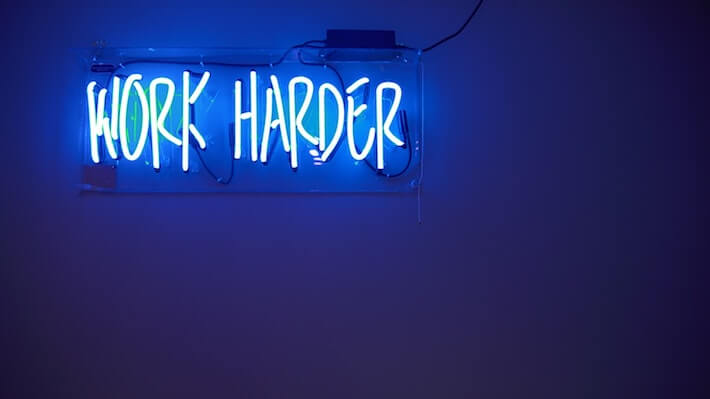What do Paul McCartney and Keith Richards have in common - other than being massively successful recording artists? For one, they both claim that some of their greatest hits weren’t written by their waking minds - but rather while they slept. Both these incredibly successful artists (and no doubt many more) are famous for keeping instruments and tape recorders close to their beds - and they both credit the creative processes involved in sleep for creating some of their most iconic songs including “Yesterday” and “I Can’t Get No (Satisfaction)”.

Since biblical times, philosophers and mystics have searched for meaning and prophesy in the dreams of kings - so it’s no surprise that dreams hold power over our emotions and our future decisions.
But like an old wife’s tale, there also appears to be a basis in fact for connecting our dreams to how we choose to affect the world around us.
When we dream (or more accurately - when we enter the phase of sleep known as REM sleep), we forge vast numbers of new connections between our recent and not so recent experiences. The act of connecting these abstract and unrelated experiences forms the basis of our human capacity to be creative.
These events have been explored in far greater depth recently by scientists who have been monitoring sleeping people’s brains using EEG and MRI scanners.
Their results?
A totally new understanding of the connection between sleep and creativity plus, a warning: Not getting enough sleep disproportionately affects our capacity for creative thinking compared to the other functions of sleep.
When you are asleep, you are only asleep on the outside.
Inside, your brain is beyond busy. In the first stage of sleep (NREM sleep), new memories are saved, useless memories are cleaned up, and the brain’s housekeeping is done. In the second phase, REM sleep, the brain starts to collide random experiences from different stages of your life - connecting ideas that might never have seemed connected. If woken abruptly, you might remember these disparate fleeting connections as dreams.
There is a more important evolutionary purpose to this process of course.
Through this collision process, the human brain can generate totally new ideas, make generalisations and form an understanding of overarching concepts in a way that the waking mind never does. You learn to be more creative by taking all of your different life experiences and connecting them together in a process that simply cannot happen while you are awake.
The most important connection between sleep and creativity is yet to come however.
While you cycle between NREM and REM sleep roughly every hour and a half during the night, for some evolutionary reason, your body tends to focus on longer bouts of NREM sleep earlier in the night. A greater focus is placed on REM sleep later during your sleep time - peaking during your 6th through 8th hour of peaceful sleep.
Cutting short this late stage sleep (as has become so common in modern society) will directly and materially impact your ability to solve problems creatively and productively. Stay asleep and your brain will actively continue to work on your day’s challenges, employing a range of tactics not available to your waking mind. An experiment by UC Berkeley even showed that the problem solving capacity of the brain in REM sleep was 15-35% more effective than its ability to solve the same problems while awake.
Does it really surprise you that so many eureka moments are famously attributed to the morning time shower ritual?
It’s one things being creative, it’s another thing entirely bringing a productive and positive mindset to everything you do every day. Every aspect of your daily performance, from your understanding of other people’s emotions to your fitness, health and even your own work satisfaction are affected by the quality and duration of sleep you get. Here are a few other things that studies have shown happen when you don’t get enough sleep:

To finish off, lets debunk some of the other common myths or counter arguments that surround getting anything less than 8 hours of proper restful sleep:
You might believe you can get by with seven hours, six hours or even fewer hours of sleep. While it is true that the human body can adapt to this lesser amount of sleep, all available evidence still suggests that getting this reduced level of sleep will still cause you to suffer from all the creative, mental and emotional costs of sleep deprivation. You just won’t realise it. That’s because…
You can’t tell when you are underperforming due to tiredness. You will simply drop your level of inspiration, energy and creativity and never be any wiser. Also…
You can’t bank sleep and you can’t recover it. Once you lose a night’s sleep - even a single night - the memories and connections that would have been created for that day cannot ever be recovered. Studies have also shown that memories are also reinforced over consecutive night’s sleep, so one lost night’s sleep can have an even longer term impact on your performance that you might imagine. And what about all those stimulants?
Caffeine, alcohol and tobacco all affect the amount of sleep you get, but also the quality of sleep (measured in the amount of deep NREM and REM sleep) which is arguably more important. If you are tired, the solution is probably less, not more, of these substances.

All the research evidence is clear. If you want peak creativity and emotional understanding of your clients and users - you really have to make sure you get 8 uninterrupted hours of sleep every night. No other solution will suffice.